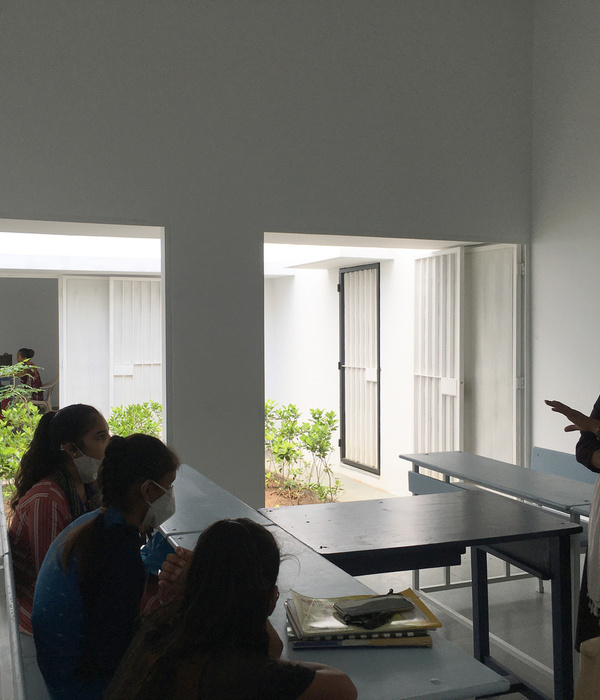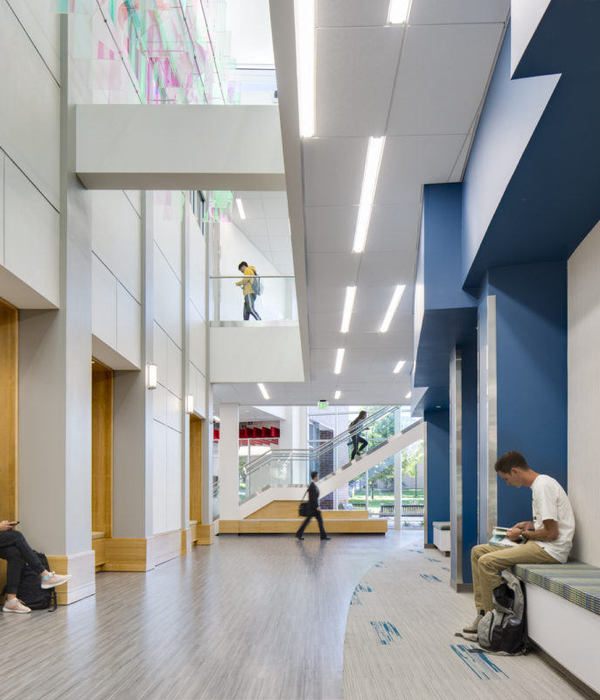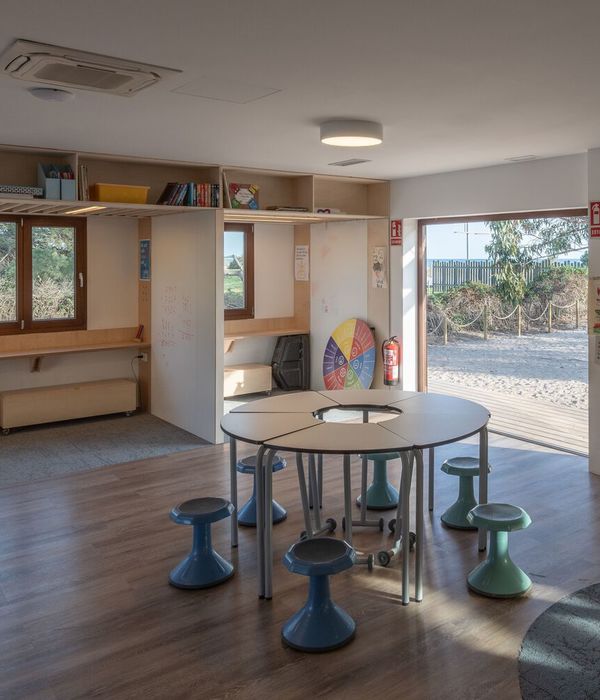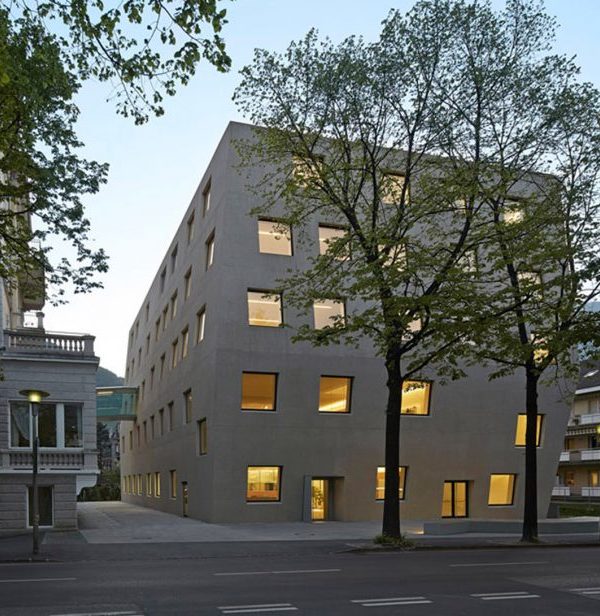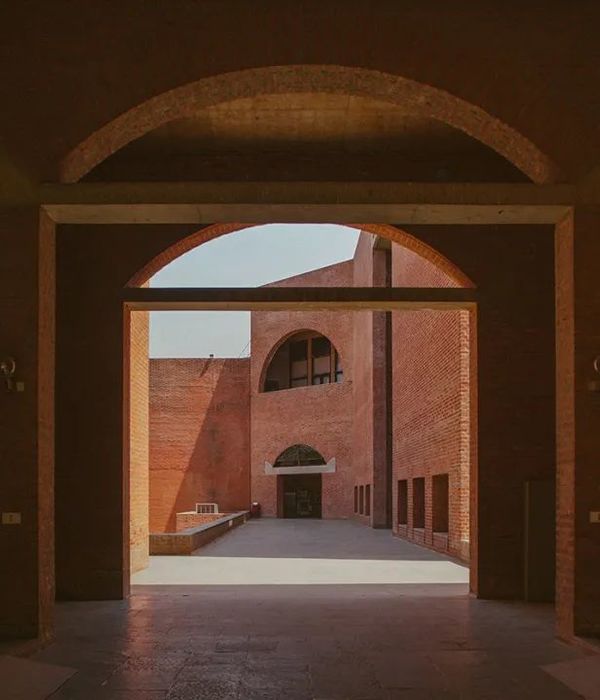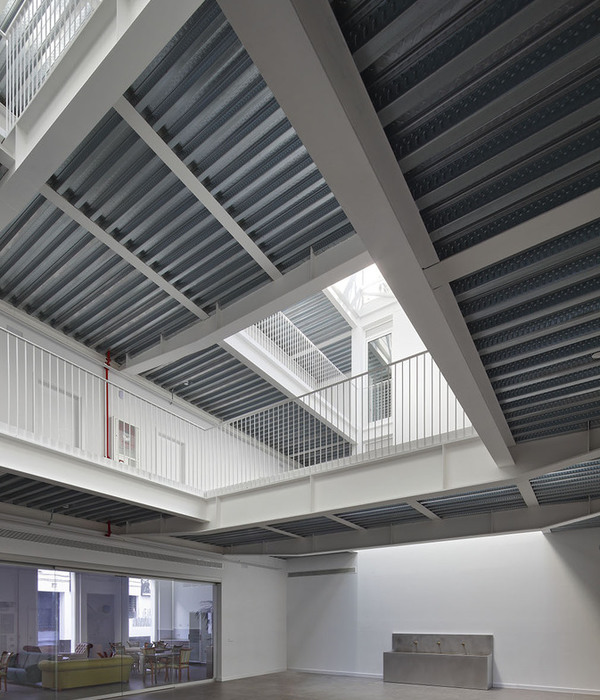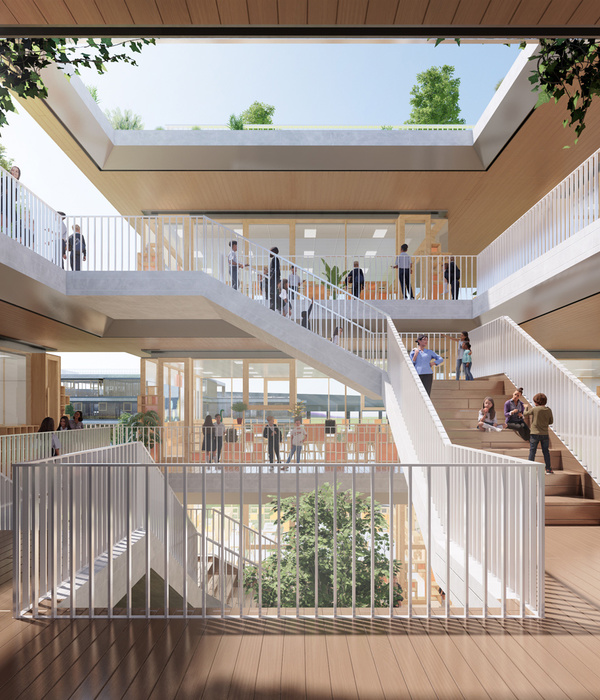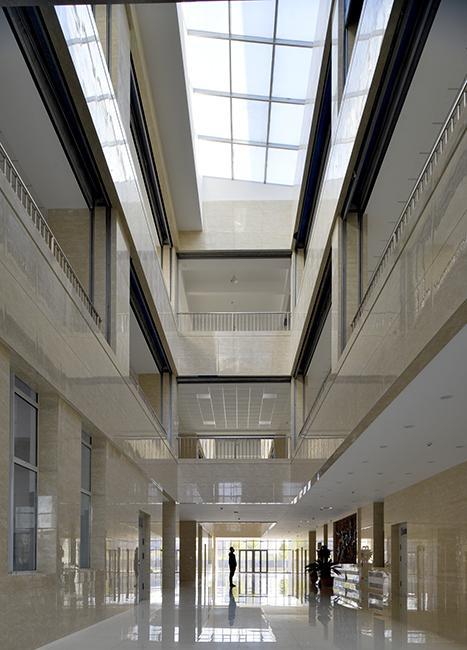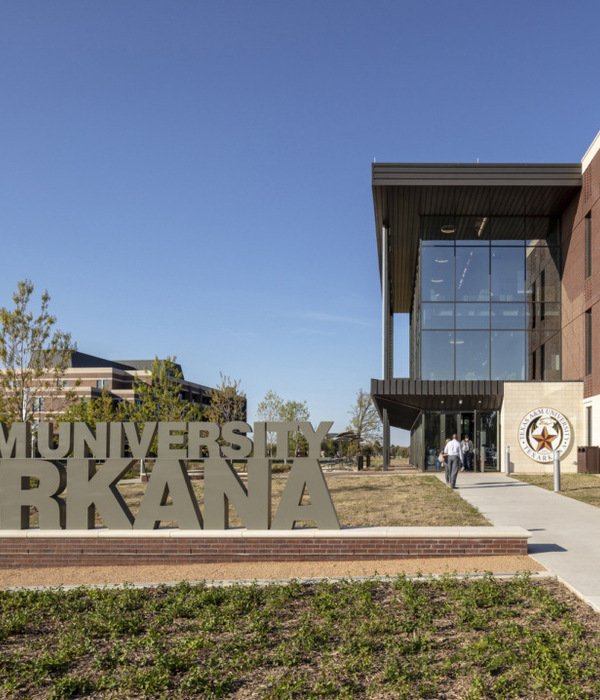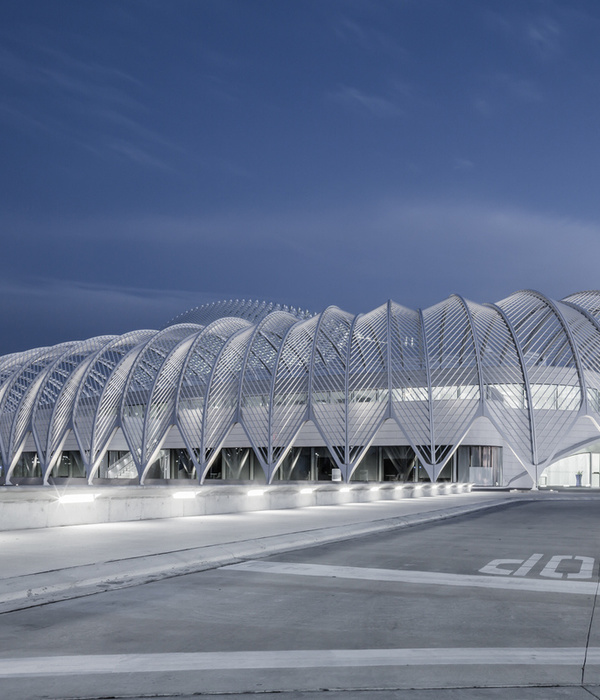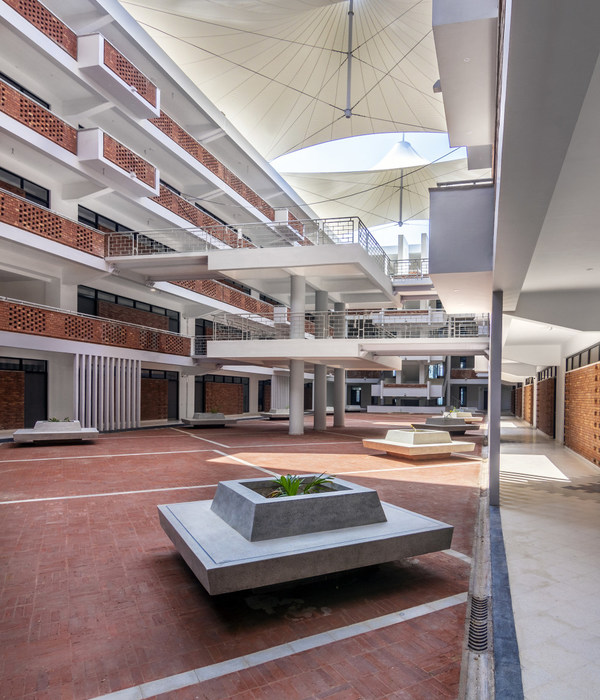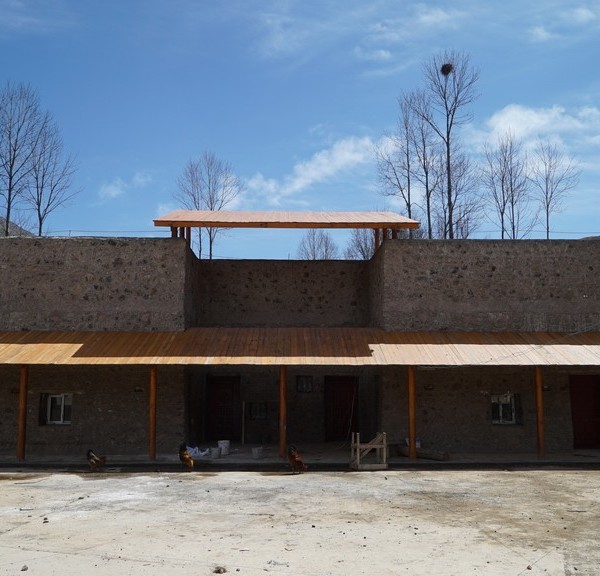Estudio Flume has recently completed a beekeeper’s workshop in the Brazilian Amazonia for the Associação dos Apicultores de Canaã dos Carajás. The project forms part of a socioeconomic and environmental strategy aiming to develop a self-sustainable local business that can help in the recovery of the rainforest from deforestation and land exploitation.
The project is located in the Canaã dos Carajás in the Pará Estate of Brazil. It consists of a workspace to process honey collected by a co-operative of beekeepers formed by 53 local rural producers.
The site has a difference in height of seven meters, which would have required considerable and costly ground-works to achieve a graded surface. Hence the decision to suspend the concrete slab on pilotis which worked well within the budget, though it also represented an opportunity to naturally ventilate the building.
The orientation of the Casa do Mel was designed with consideration to the local climate, prioritizing the thermal comfort and natural lighting of the workspace. The most permanent premises, such as the container and process rooms for honey, were located facing East to get the early morning sunlight.
The facade was built with concrete blocks backed with insect mesh to allow cross ventilation and to regulate the internal light levels. This helps to maintain a healthy environment in the production rooms.
The separation of the floor from the ground as well as the double-layered roof (slab and corrugated metal sheet) generates air pockets that help with the thermal comfort of the building. This strategy is strengthened by the shading provided by the over-sailing roof canopy.
The project incorporates sustainable strategies such as the circle of banana trees (Circulo de bananeiras), a method used to treat grey waters and prevent soil contamination; a bio-digester to treat organic waste and produce fertiliser and organic compost, and the harvesting of rainwater for non-drinkable water to use in toilets.
{{item.text_origin}}

